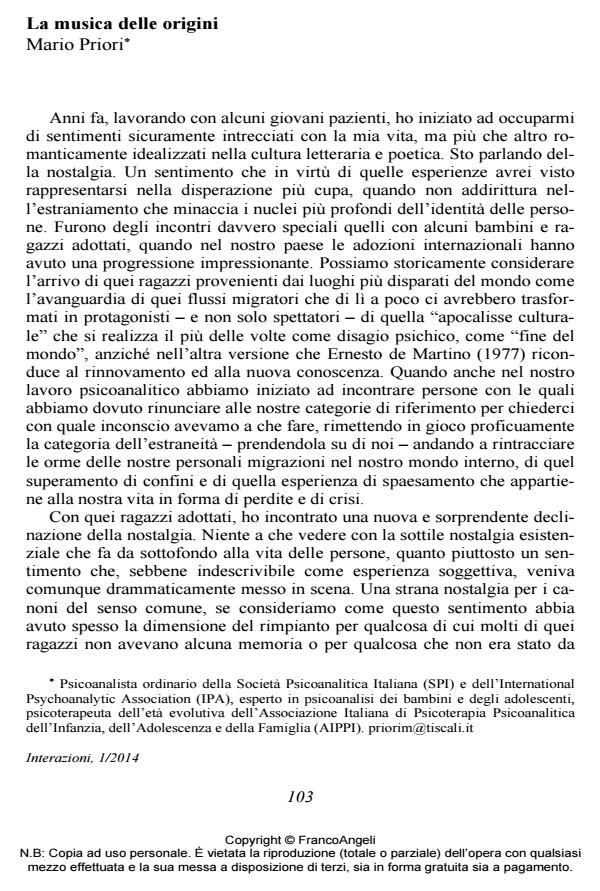The music of the origins
Journal title INTERAZIONI
Author/s Mario Priori
Publishing Year 2014 Issue 2014/1
Language Italian Pages 9 P. 103-111 File size 49 KB
DOI 10.3280/INT2014-001009
DOI is like a bar code for intellectual property: to have more infomation
click here
Below, you can see the article first page
If you want to buy this article in PDF format, you can do it, following the instructions to buy download credits

FrancoAngeli is member of Publishers International Linking Association, Inc (PILA), a not-for-profit association which run the CrossRef service enabling links to and from online scholarly content.
Starting from clinical experiences with foreign children who have been adopted in our country, psychic implications are here discussed in relationship to the children’s relinquishment of their original native languages. This renunciation, in many cases, takes place with surprising immediateness and seems to offer an element of reassurance to the adoptive parents, struggling with the ghost of estrangement. If, on the one hand, such an immediate relinquishment of the native language implies a defensive element linked to the children’s distancing from past painful experiences, on the other it also leads to a laceration of the earliest relational bonds underlying the establishment of verbal language. The weaving of this sound pattern starts in pre-natal life by means of relational elements within a maternal presence that serves as a sound horizon. Maternal musicality, which is at the basis of future language, can be considered as the activator of a rhythmic impulse to live, move and communicate with a person other than oneself.
Keywords: International adoptions, mother language, estrangement, nostalgia.
Mario Priori, La musica delle origini in "INTERAZIONI" 1/2014, pp 103-111, DOI: 10.3280/INT2014-001009